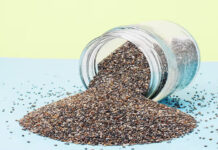It’s no secret that the ‘average’ American in today’s world is battling with some type of weight problem. The vast majority of adults today, especially when it comes to the female population, would desire to be thinner.
Even if you are at a ‘healthy weight’ by medical standards, chances are you still have an inch or two somewhere on your body that you would do without if given the option.
As such, more and more people start up on a diet plan every single day. But, do these diets really last? And, just what are we eating on our everyday diets?
The results might just surprise you.
Let’s take a closer look into what the average American diet consists of and how you should go about improving upon this.
The Average American Diet
When looking at the average person, we are doing okay in our vegetable consumption with an intake of over 400 pounds of vegetables per year. Keep in mind this does count ketchup and other vegetable based-sauces, which may skew the intake upwards higher than it should be for whole vegetable foods.
On average, we also consume 273.2 pounds of fruits, so while we aren’t eating as many fruits as vegetables, we are getting some in.
Fats and oils also rank as a large portion of our diet with 85.5 pounds of them consumed by the average American each year.
Red meat comes in at 110 pounds and chicken at 73.6 pounds, which are the two primary protein sources that Americans are eating. Fish is only ranked at 16.1 pounds per year, which is far lower than it really should be.
Cheese is also eaten in abundance with 31.4 pounds consumed per year and eggs come in at 32.7 pounds. Dairy products are one of the most heavily consumed foods at 600.5 pounds of them eaten per person, per year.
Wheat flour comes in at 134.1 pounds per person, which is something that you should be making an effort to bring down.
Worse yet, corn syrup is ranked at 42 pounds per person and really needs to be brought down lower as corn syrup is one of the leading causes of obesity at the moment.

Changes You Should Make
So what changes should you be making so that you can improve upon ‘average’?
First, focus on making sure that you are eating whole vegetables, preferably dark leafy greens which are most nutrient-dense.
Next, bring your fruit intake upwards, focusing on berries, oranges, and apples, which rank low on the GI index scale. Fish should make up more of your protein choice selection with poultry coming in close behind. Red meat should make up the lowest protein source in your diet, rather than the highest.
Try and reduce back on full-fat cheese and eat more low-fat dairy products instead, while reducing your consumption of wheat flour and corn syrup as much as possible.
If you can make these changes as well as take a supportive weight loss supplement such as Adiphene to further your progress along, you should see your body weight naturally decrease along with your risk of a number of diseases.
Don’t be average – be better than average.
















